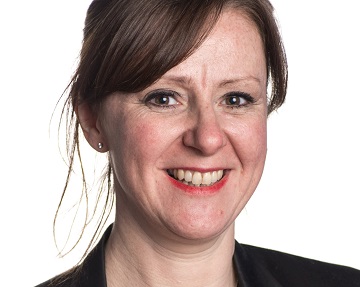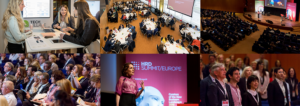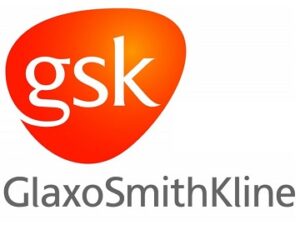Odeon UCI’s Kathryn Pritchard: Stay true to the vision and values of your business
- 6 Min Read
Odeon and UCI Cinemas group chief people officer Kathryn Pritchard reveals how important it is to maintain strong, transparent communications during difficult times.
- Author: HRD Connect
- Date published: Nov 8, 2016
- Categories

Odeon and UCI Cinemas group chief people officer Kathryn Pritchard reveals how important it is to maintain strong,  transparent communications during difficult times.
transparent communications during difficult times.
She also discusses the importance of understanding the interdependencies between government policy and business strategy.
Pritchard was speaking to HRD Connect ahead of her session at the HRD Summit 2017.
What is the biggest challenge and opportunity facing the HR profession right now?
The opportunity for the HR profession is to really become professional about creating cultures that maximise performance, return on investment and commercial outcomes for businesses.
I see the HR profession’s future is all about orchestrating that culture and providing the context for people to work in and to do their best work.
The biggest challenge is building a body of skills and knowledge of how to do that, because a lot of HR historically has been process and system related.
So we need to become more strategic, and understanding the business levers and commercial values of those levers is a big challenge.
What is likely to have the biggest effect on the work of your HR team: business strategy or government policy?
Both have a massive impact.
With government policy, everything around the minimum and living wage is important, apprenticeships, and we don’t know what’s going to happen post-Brexit.
There is still a lot of uncertainty around those kind of things, so those are things that we watch very closely and are interested in, they impact our business enormously.
But our business strategy is also very important and steering our path in a very competitive marketplace means that our business strategy has to be very smart and the execution of that strategy arguably smarter still.
We have to make one support the other and understand the interdependencies between them to orchestrate a really good outcome for our people and a really good commercial outcome.
Where can HR make the biggest difference in your organisation?
HR in our organisation has moved from being reasonably transactional to being much more of a strategic driver of business success.
We’ve done that by creating a very bold strategy around the end-to-end colleague experience. That has given a lot of clarity to the organisation about what it’s like to work here.
It has helped engage and motivate people and creates a lot of safety about what they can expect when working here: it allows a lot of the questions about how someone’s career will be managed to be answered simply and transparently so they can be focusing on creating a good experience for our guests.
That journey is 18 months old and for the next 12-18 months it’s about embedding that journey, bringing it to life and ensuring it is delivered consistently across the organisation.
The strategy is about creating a culture and architecture that makes high performance of individuals and of the business a certainty and not just a possibility.
We pride ourselves on being innovate and creative. With this sale process going on it would be easy to let the innovation and creativity drop, but that has been a really big part of what’s made working here fun over the last 18 months and it is really important for us to keep that innovation alive as well.
In an environment where the business is up for sale, how do you keep employees engaged and maintain retention?
In the last 18 months the motivation and engagement of our colleagues has risen and we have found the sale process hasn’t disrupted engagement and motivation. How do you do it?
We have stayed true to the vision and the values of the company – we have been open and transparent with our people as much as we can be all the way through.
While selling the business we’ve also been launching new products and initiatives for our people. That really gives them a clear sense that we’re not up for sale and stagnant, we’re developing the business and giving them more of what they want, at the same time as thinking about the sale.
That has been really important.
The worst thing that you can do is stop developing your business while you’re trying to sell it because then everybody thinks that they’re treading water and we absolutely haven’t done that.
What can you do to prepare the people and business for a sale when it has been publicly put on the market?
Communicate, be transparent, have authentic leadership and focus on internal communications.
Everybody talks about these, but we don’t give lip service to those things, we take them very seriously and that creates this trusting environment which underpins everything else.
What can you do once a potential merger has been announced to prepare the people and business for it?
That’s the state we’re in at the moment: the sale has been announced and we’re between exchange and completion.
Again, it’s a lot of communication – question and answer sessions, allowing people to voice how they are feeling about it and keep them up to speed about the sales process.
Can HR make a business more attractive to a potential buyer other than simply reducing costs?
I think there’s an awful lot HR can do.
We absolutely did not approach this from a cost reduction perspective, we looked at this from a value creation perspective.
We believe happy, engaged, motivated colleagues are going to give the best experience for our guests and then happy guests come back to the business and spend more. So making sure that there’s plenty of energy and motivation in the business was the approach.
There are businesses where it’s really important to reduce costs and that’s a matter of survival, but not without a focus on creating value – one without the other is not a good thing.
We were very focused on building a sustainable business, not only something which would be bought but would be a fabulous asset.








